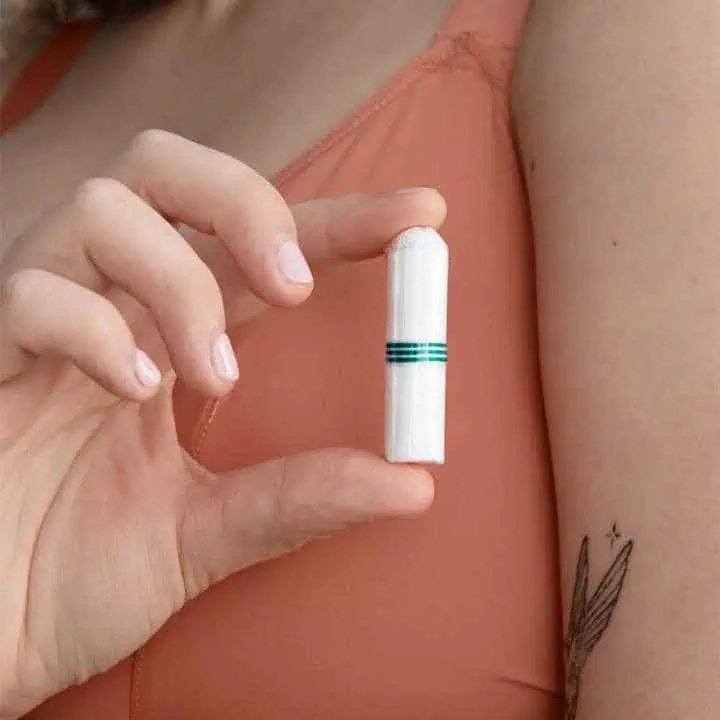In recent years, the global feminine hygiene market has undergone a significant shift. As consumers become increasingly aware of health, environmental, and ethical concerns, there is a rising demand for organic and eco-friendly menstrual products. Among these, organic tampons have emerged as a preferred choice for many women worldwide. This article explores what it means to be an organic tampon manufacturer, the benefits of sustainable feminine care products, and how businesses can meet growing B2B demand.
What Are Organic Tampons?
Organic tampons are menstrual products made with certified organic cotton that is grown without the use of pesticides, herbicides, or chemical fertilizers. Unlike conventional tampons, which may contain synthetic fibers, fragrances, or chlorine-bleached materials, organic tampons are designed to be safe for both the body and the environment. They are often biodegradable, hypoallergenic, and free from dioxins and other harmful substances.
Key Characteristics of Organic Tampons:
- Made from 100% certified organic cotton
- Chlorine-free and dioxin-free
- Plastic-free applicators (or compostable materials)
- Biodegradable wrappers and packaging
- Dermatologically tested and gynecologist-approved

Why Sustainable Feminine Care Matters
Sustainability is no longer a trend but a necessity. The feminine hygiene industry produces billions of single-use products annually, most of which end up in landfills or oceans. Organic tampon manufacturers are stepping up to reduce this footprint by offering safer, biodegradable alternatives.
Environmental Benefits:
- Reduced plastic and synthetic waste
- Lower carbon emissions in the production process
- Decreased water usage and pollution from pesticide runoff
Health Benefits:
- Minimized risk of irritation and allergic reactions
- No exposure to harmful chemicals and fragrances
- Promotes vaginal health with breathable natural fibers
Ethical Impact:
- Supports organic farming communities
- Ensures fair labor practices
- Meets growing demand for cruelty-free and vegan products
The Manufacturing Process of Organic Tampons
Producing organic tampons requires strict adherence to both health and environmental standards. Here’s an overview of the steps involved:
- Sourcing Organic Cotton: Cotton is sourced from certified organic farms. Each batch is tracked to ensure traceability and compliance with global standards like GOTS (Global Organic Textile Standard).
- Purification and Processing: The cotton is cleaned and processed without harsh chemicals. Natural methods such as steam or peroxide bleaching are used to whiten the cotton safely.
- Shaping and Assembly: Cotton is compressed into tampon cores, and if an applicator is included, it is typically made from biodegradable or recyclable materials such as cardboard or bio-plastic.
- Sterilization and Packaging: Tampons are sterilized using eco-friendly methods and packaged in sustainable, recyclable, or compostable wrappers.
- Quality Assurance: Products undergo rigorous testing for absorbency, tensile strength, microbiological safety, and user comfort.
Meeting B2B Demand: Private Label & OEM Services
For distributors, retailers, or startups looking to enter the organic tampon market, partnering with a trusted manufacturer is key. Organic tampon manufacturers often provide flexible B2B solutions, including:
- Private Label Manufacturing: Custom packaging, logo printing, and brand messaging tailored to your target audience.
- OEM Services: Customization of tampon size, shape, absorbency levels, and packaging materials.
- Regulatory Compliance: Assistance with certifications such as FDA, CE, ISO, and GOTS.
- Low MOQs: Ideal for small to medium enterprises looking to test the market.
Choosing the Right Organic Tampon Manufacturer
When selecting a manufacturing partner, consider the following factors:
- Certifications: Ensure the manufacturer has relevant certifications for organic and hygienic production.
- Sustainability Practices: Inquire about their waste management, carbon footprint, and use of renewable energy.
- Quality Control: Ask about testing protocols and quality assurance systems.
- Experience: Look for manufacturers with a track record of supplying to international markets.
Conclusion
As more consumers shift toward healthier and more environmentally conscious choices, organic tampons are poised to become a mainstream feminine care product. Manufacturers who invest in sustainability, transparency, and innovation are not only future-proofing their businesses but also contributing to a healthier planet. Whether you’re a wholesaler, distributor, or a new brand looking to enter the market, collaborating with a reliable organic tampon manufacturer can open the door to a growing and loyal customer base.
Explore More:
- Full Tampon Manufacturing Process Guide
- How to Start Your Own Feminine Care Brand
- Private Label vs OEM: What’s Best for Your Business?
Q: What makes a tampon organic?
A: Organic tampons are made from 100% certified organic cotton, free from chlorine, synthetic fibers, and harmful chemicals.
Q: Are organic tampons safer than regular tampons?
A: Yes, organic tampons are typically safer due to their natural composition and lack of harmful additives.
Q: Can I start a private label brand with an organic tampon manufacturer?
A: Yes. Many manufacturers offer private label and OEM services tailored to your brand and market needs.
By aligning with an organic tampon manufacturer focused on innovation and sustainability, your business can make a lasting impact in the hygiene industry—one tampon at a time.
